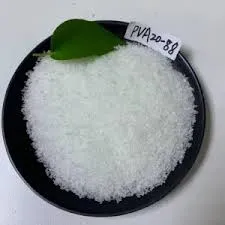Understanding Cellulose Methyl Properties, Applications, and Benefits
Cellulose methyl, or methylcellulose, is a remarkable cellulose derivative that has found extensive use in various industries due to its unique properties and functionalities. As a non-toxic, biodegradable polymer, it is synthesized from natural cellulose, a structural component of the plant cell wall. The modification process involves the substitution of hydroxyl groups in cellulose with methyl groups, resulting in a compound that exhibits versatile characteristics.
One of the most striking properties of methylcellulose is its exceptional water solubility. It forms a gel-like consistency when mixed with water, which can be influenced by factors such as concentration and temperature. This property is particularly useful in the food industry, where methylcellulose acts as a thickening agent, emulsifier, and stabilizer. Foods such as ice cream and salad dressings benefit from this additive, as it improves texture and maintains moisture, enhancing overall product quality.
In addition to its application in food products, cellulose methyl is widely used in the pharmaceutical and cosmetic industries. Its ability to form viscoelastic gels makes it an ideal compound for drug delivery systems, ensuring the controlled release of medication. Furthermore, its use in cosmetic formulations, such as lotions and creams, helps improve the consistency and spreadability of products while providing a smooth texture on the skin.
cellulose methyl

The construction industry has also embraced the benefits of methylcellulose. As a pivotal ingredient in construction materials such as cement and mortar, it significantly enhances workability and adhesion properties. The addition of methylcellulose allows for improved water retention, which extends the working time for masons and builders. Moreover, it aids in reducing cracking during the drying process, ensuring a durable and reliable end product.
Another noteworthy aspect of methylcellulose is its role in sustainable practices
. Given its biodegradable nature, it serves as an eco-friendly alternative to synthetic polymers, which often persist in the environment. By opting for cellulose methyl, industries can support environmental sustainability while meeting the functional demands of their products.Despite its many advantages, the production and modification of cellulose methyl require careful control of reaction conditions to ensure the desired degree of substitution. This process not only dictates the solubility and viscosity of the final product but also its overall performance in various applications.
In conclusion, cellulose methyl is a versatile and valuable compound that has made significant contributions across multiple sectors, including food, pharmaceuticals, cosmetics, and construction. With its unique properties and numerous benefits, methylcellulose continues to be a focus of research and development, opening new avenues for innovative applications that align with sustainable practices. As we advance toward a more environmentally-conscious future, the importance of such biodegradable alternatives in various industries cannot be overstated.
-
Rdp Powder: Key Considerations for Wholesalers in the Building Materials IndustryNewsJul.08,2025
-
Key Considerations for Wholesalers: Navigating the World of Hpmc - Based ProductsNewsJul.08,2025
-
Hpmc Detergent: Key Considerations for WholesalersNewsJul.08,2025
-
Key Considerations for Wholesalers: China Hpmc For Tile Adhesive, Coating Additives, Concrete Additives, and MoreNewsJul.08,2025
-
Crucial Considerations for Wholesalers: Navigating the World of Construction MaterialsNewsJul.08,2025
-
Key Considerations for Wholesalers Sourcing Additive For Cement, Additive For Concrete, Additive For Putty from Additive Manufacturer Shijiazhuang Gaocheng District Yongfeng Cellulose Co., Ltd.NewsJul.08,2025




